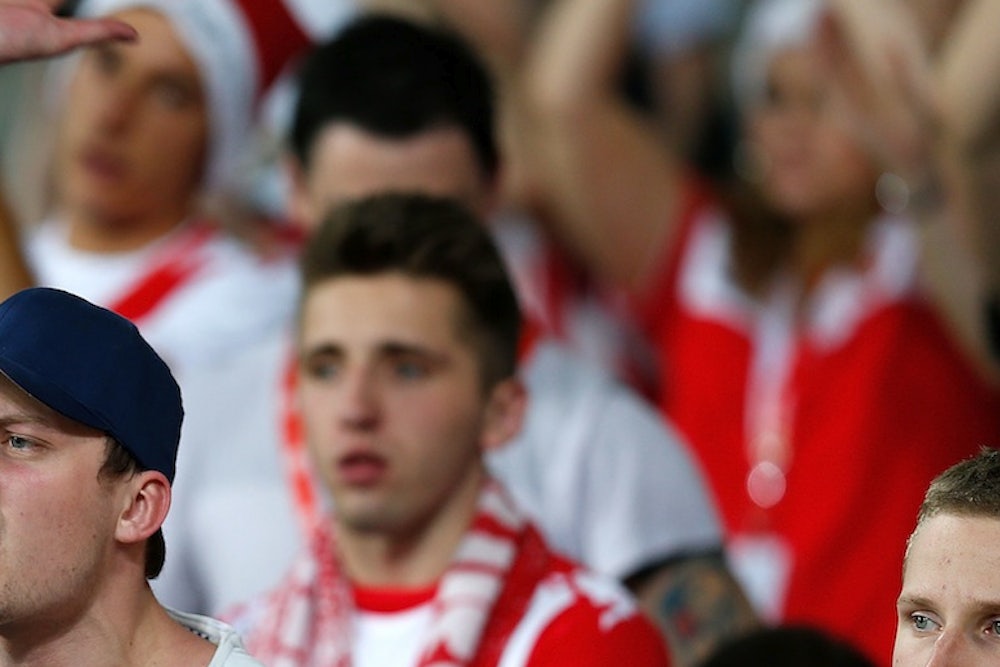The New Republic does not, as far as I know, publish horoscopes, but I would like to issue a warning to American soccer fans: Beware the 16th, 22nd, and 26th of June. Especially if you have an underlying heart condition.
In 2008, a team of doctors led by Ute Wilbert-Lampen gathered reports from hospitals around the Munich area and analyzed rates of cardiovascular events during the 2006 World Cup. They compared hospitalizations for heart attacks on the seven days the German national team competed with hospitalizations on the 24 days when the Germans didn’t play. (They looked at periods immediately preceding and following the World Cup, too.) After controlling for environmental factors like temperature and air pollution, Wilbert-Lampern and his colleagues calculated that Germans’ risk of ending up in hospital for a heart attack or cardiac arrhythmia was 2.66 times greater on match days involving the German team than during the control periods. Their paper was published in the New England Journal of Medicine.
The outlook was especially ominous for men: Their risk more than tripled on match days, swelling to 3.26 times higher than the normal rates. Women’s risk didn’t quite double—increasing only by 1.82 times. The gendered difference, write the authors, “may be explained by sex-specific pathophysiological differences or by differences in the degree of interest in soccer matches or vulnerability to emotional triggers.” For men, the risk incurred by watching a stressful soccer match appears to be only a little less than experiencing an earthquake. In 1996, another paper in The New England Journal of Medicine showed that sudden deaths from cardiac events increased by a factor of five on the day a major earthquake hit Los Angeles.
The doctors assign most of the blame for the rise in cardiac emergencies to the emotional stress of watching the matches, but they point out that going to a soccer game can involve a host of other behaviors that don’t exactly promote heart health: “lack of sleep, overeating, consumption of junk food, heavy alcohol ingestion, smoking, and failure to comply with the medical regimen.” There does appear to be a link, though, between the incidence of heart attacks and game-related excitement. The two most dramatic spikes correspond with two particularly stressful games: a close match between Germany and Argentina, and an important loss to the Italians.

The construction of World Cup–caliber stadiums in Sao Paolo has claimed several Brazilian lives, and, according to some calculations, Qatar is on track to kill as many as 4,000 workers as they prepare to host in 2022. But even for spectators, soccer may be a matter of life and death.
